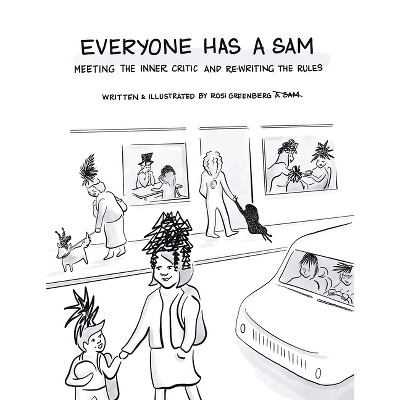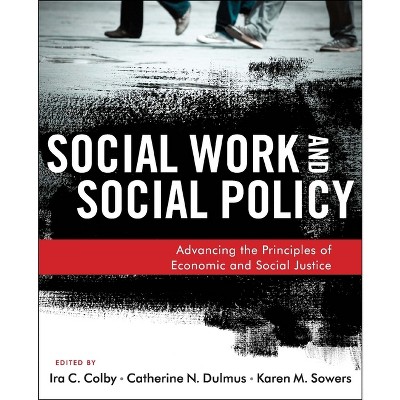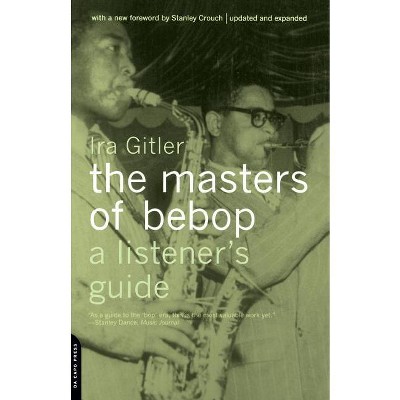The Hebrew National Orphan Home - by Ira a Greenberg & Richard G Safran & Sam George Arcus (Hardcover)

About this item
Highlights
- Some two dozen boys tell of growing up in the Hebrew National Orphan Home.
- About the Author: IRA A. GREENBERG is Executive Director of the Group Hypnosis Center, Los Angeles, a clinical psychologist, and a business coach.
- 328 Pages
- Political Science, Public Policy
Description
About the Book
Some two dozen boys tell of growing up in the Hebrew National Orphan Home. Though punishment was often brutal and where a few boys were victims of sexual predators, residents had many religious, recreational, educational, cultural, and athletic opportunities. Most agree that the good far outweighed the bad.
Orphanage horror stories of the 19th and early 20th centuries brought on the modern welfare system that includes foster-care programs. Yet as effective as the foster-care programs throughout the nation have been in providing good care and safety for many hundreds of thousands of children, there are still far too many youngsters who have been ill-served by these programs. Many are shunted from place to place. The authors argue that well-run orphanages offer a better solution. Their essays tell the story of The Home that reared them and provides understanding of what life in an orphanage was like.
Book Synopsis
Some two dozen boys tell of growing up in the Hebrew National Orphan Home. Though punishment was often brutal and where a few boys were victims of sexual predators, residents had many religious, recreational, educational, cultural, and athletic opportunities. Most agree that the good far outweighed the bad.
Orphanage horror stories of the 19th and early 20th centuries brought on the modern welfare system that includes foster-care programs. Yet as effective as the foster-care programs throughout the nation have been in providing good care and safety for many hundreds of thousands of children, there are still far too many youngsters who have been ill-served by these programs. Many are shunted from place to place. The authors argue that well-run orphanages offer a better solution. Their essays tell the story of The Home that reared them and provides understanding of what life in an orphanage was like.Review Quotes
?It is the story as remembered by Ira and others who were sheltered, fed and taught there--and, more importantly, given a sense of family and community. It covers the good and the bad, and can serve as a basis to examine how orphanages compare to today's foster care programs, and whether or not to bring back such institutions.?-Mensa Bulletin
?The Hebrew National Orphan Home is a well-edited memoir focusing on the experiences of a handful of the 1,300-1,800 boys who passed through the HNOH's doors from 1914 to 1958. The book is also a social commentary on contemporary child welfare policy....provides a rare glimpse into the lives of institutionalized children. It is a step in the right direction helping to inform current public policy concerning America's needy children.?-Shofar
"It is the story as remembered by Ira and others who were sheltered, fed and taught there--and, more importantly, given a sense of family and community. It covers the good and the bad, and can serve as a basis to examine how orphanages compare to today's foster care programs, and whether or not to bring back such institutions."-Mensa Bulletin
"The Hebrew National Orphan Home is a well-edited memoir focusing on the experiences of a handful of the 1,300-1,800 boys who passed through the HNOH's doors from 1914 to 1958. The book is also a social commentary on contemporary child welfare policy....provides a rare glimpse into the lives of institutionalized children. It is a step in the right direction helping to inform current public policy concerning America's needy children."-Shofar
About the Author
IRA A. GREENBERG is Executive Director of the Group Hypnosis Center, Los Angeles, a clinical psychologist, and a business coach.
RICHARD G. SAFRAN is an educational consultant in New York City. SAM GEORGE ARCUS is Coordinator, Long-Term Care Advocacy Program, Pima Council on Aging, Tucson.




